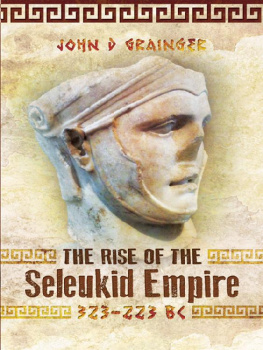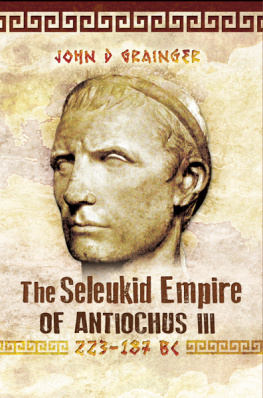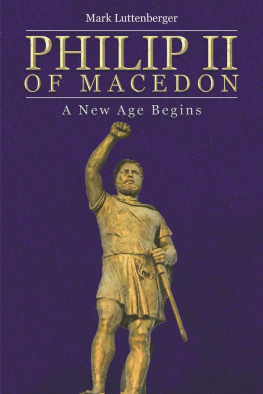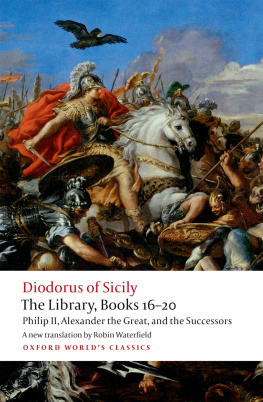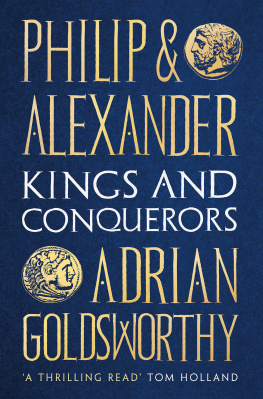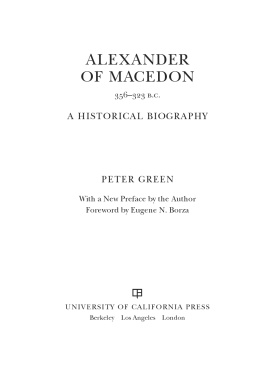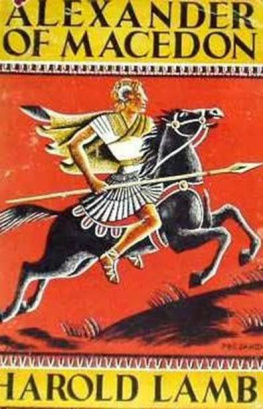Antipaters Dynasty
Antipaters Dynasty
John D Grainger
First published in Great Britain in 2019 by
Pen & Sword Military
An imprint of
Pen & Sword Books Ltd
Yorkshire Philadelphia
Copyright John D Grainger 2019
ISBN 978 1 52673 088 6
eISBN 978 1 52673 089 3
Mobi ISBN 978 1 52673 088 6
The right of John D Grainger to be identified as Author of this work has been asserted by him in accordance with the Copyright, Designs and Patents Act 1988.
All rights reserved. No part of this book may be reproduced or transmitted in any form or by any means, electronic or mechanical including photocopying, recording or by any information storage and retrieval system, without permission from the Publisher in writing.
Pen & Sword Books Limited incorporates the imprints of Atlas, Archaeology, Aviation, Discovery, Family History, Fiction, History, Maritime, Military, Military Classics, Politics, Select, Transport, True Crime, Air World, Frontline Publishing, Leo Cooper, Remember When, Seaforth Publishing, The Praetorian Press, Wharncliffe Local History, Wharncliffe Transport, Wharncliffe True Crime and White Owl.
For a complete list of Pen & Sword titles please contact
PEN & SWORD BOOKS LIMITED
47 Church Street, Barnsley, South Yorkshire, S70 2AS, England
E-mail:
Website: www.pen-and-sword.co.uk
Or
PEN AND SWORD BOOKS
1950 Lawrence Rd, Havertown, PA 19083, USA
E-mail:
Website: www.penandswordbooks.com
Introduction
I n the aftermath of Alexanders destruction of the Akhaimenid (Persian) Empire during his campaigns of 334323, four families emerged to found dynasties who ruled sections of that empire. The best-known, because of the proliferation of sources available for studying it, is the dynasty founded by and descended from Ptolemy son of Lagos, which governed Egypt from 323 to 30 bc. The greatest of the dynasties, however, was that descended from Seleukos, a friend, colleague, and enemy of Ptolemy, which ruled varying territories of Asia from the Aegean Sea to the borders of India from 311 to 83 bc. The family of Antigonos I began the process of assuming royal titles and, after an erratic early career, came to rule Macedon from 277 to 168 bc, as the Antigonid dynasty. The least known and shortest lived of the four was the dynasty descended from Antipater, whose members ruled Macedon as regent and king from 334 to 294 bc. But the family also had a strong effect on all the other dynasties, and the daughters of the first of the family, Antipater, married into the other dynasties, with apparently a major effect on their histories, and above all on the treatment of royal wives.
This is a study of that dynasty, one which had been curiously neglected, for the other three have all had several full-length studies and biographies made of them, and this appears to be the first study of this dynasty.
List of Genealogical Tables
I. The Family of Antipater
II. The Family of Antipaters Eldest Daughter
III. The Family of Nikaia
IV. The Families of Eurydike and Berenike
V. The Families of Phila
VI. The Macedonian Kings, 359239
Table I: The Family of Antipater.
A. Sons.
B. Daughters.
CAPITALS: Rulers of Macedon (see also Table VI)
Order of birth is uncertain.
Table II: The Family of Antipaters Eldest Daughter.
Table III: The Family of Nikaia.
Table IV: The Families of Eurydike and Berenike.
Table V: The Families of Phila.
Table VI: The Macedonian Kings, 359 239.
Chapter 1
Rise to Power
A ntipater was a Macedonian gentleman, nobleman, and soldier. This we may assume since he emerges in all these roles during the reign of King Philip II (359336). He was a contemporary, and possibly a rival, of Parmenion, and both of them became Philips strong supporters, at least once he had demonstrated his capabilities. They figure prominently, even decisively, in the events of Philips reign (and then in that of his son Alexander). But Antipater was the senior in age of all these men and, except for the king, the most notable in attainments and he survived all of them.
They lived in a difficult but exhilarating period in Macedon. All three men were born in the early fourth century the suggested year of Antipaters (and Parmenions) birth is 399 or 397, and of Philip about 380 and so they all grew to adulthood in a time when the Macedonian kingship was unstable and often in dispute, and when the royal government, and indeed the very existence of the kingdom, was threatened with destruction. It was in part the decision of these men to coalesce in support of Philip when he seized the kingship that was one of the foundations of the new kings strength. And the necessity for ensuring the kings power, and therefore the integrity of the kingdom, became the foundation of Antipaters conduct and work.
Antipater, the oldest of this group, was born in or just after the reign of King Archelaos (413399 bc), who was one of the more effective, not to say ambitious, of the Macedonian kings of the Temenid (or Argead) line. He operated to reduce dissension within the nobility, and to this end he developed a new capital city at Pella, built on an imperial scale. But the king died, assassinated, in 399, and much of his political work was dissipated in the confused decade which followed.
Antipater therefore grew up in a country which was, to say the least, disturbed, subject to royal assassinations and to invasions from all sides. His father, Iolaos (or Iollas), was no doubt a prominent lord, and has been tentatively identified with a man of that name who commanded a unit of



